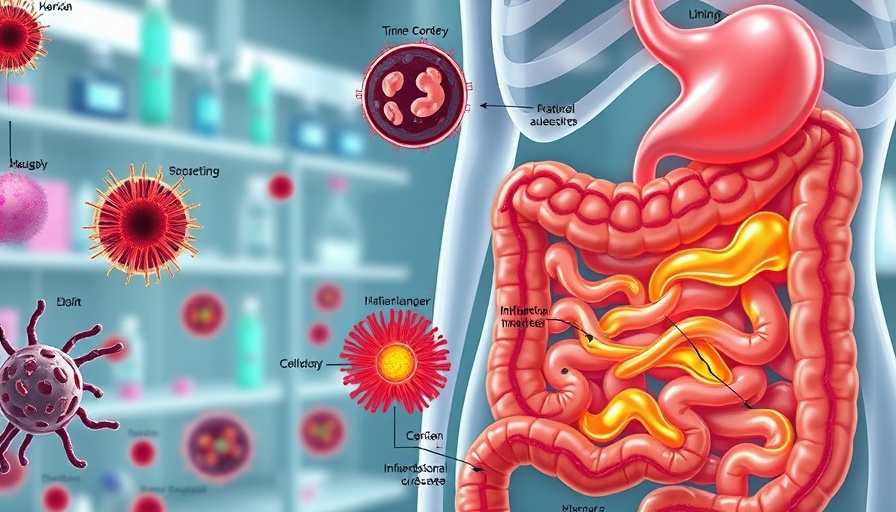
Understanding Inflammatory Bowel Disease: A Deep Dive
Inflammatory bowel disease (IBD), particularly Crohn's disease, is a chronic inflammatory condition that significantly affects the gastrointestinal (GI) tract. This disorder can lead to debilitating symptoms such as abdominal pain, diarrhea, fatigue, and weight loss, impacting the quality of life for countless individuals. Recent studies highlight the crucial role of the immune system in the onset of this disease, offering fresh insights into both its mechanisms and potential preventive therapies.
The Immune System's Role in Crohn's Disease
A breakthrough study from Mount Sinai, published in Science Immunology, reveals that dysfunctions in protective immune cells, known as intraepithelial lymphocytes (IELs), may play a significant role in the development of Crohn's disease. These immune cells act as a guardian on our intestinal barrier, preventing infections and regulating inflammation. However, research indicates that patients with active Crohn's disease often exhibit a reduction in the critical gamma delta IELs, which impairs the balance between pro-inflammatory and regulatory responses.
How Do Gamma Delta IELs Affect Inflammation?
Investigating the cellular mechanisms, scientists found that the decline in gamma delta IELs occurs early in the disease process, sometimes even before clinical symptoms emerge. This early depletion compromises the immune response, suggesting that gamma delta IELs are pivotal not just in managing inflammation but also in suppressing unhealthy overreactions of the immune system that can lead to tissue damage.
Explore Potential Predictive Biomarkers
The findings from this study propose that a loss of gamma delta IELs could serve as a predictive biomarker for disease relapse. This insight is crucial for clinicians aiming to personalize treatment, as understanding these cellular changes may help predict how a patient will respond to specific therapies, allowing for more effective management of IBD.
Future Therapies: Enhancing Immune Function
In light of this research, there is a significant opportunity to explore therapies aimed at boosting the function of gamma delta IELs. By focusing on therapies that enhance the survival and function of these immune cells, there's potential to maintain remission in IBD patients and perhaps prevent disease development altogether. This could revolutionize the way we approach treatment for Crohn's disease and improve the lives of many.
Connect with the Community for Support
As research continues to unveil the intricacies of IBD, communities focused on health and wellness are crucial. Engaging in local health and wellness events, seeking resources, and connecting with others facing similar challenges can provide essential support and information. In communities like San Antonio, various health and wellness centers offer programs and resources aimed at fostering better health practices.
Common Myths About Inflammatory Bowel Disease
One of the biggest misconceptions about Crohn's disease is that it is only a digestive issue. In reality, Crohn's can have systemic effects and affect various aspects of health, further emphasizing the importance of understanding the underlying immune mechanisms. Educating ourselves about the multifaceted nature of this disease can be empowering.
What You Can Do
For those with IBD or at risk, staying informed about the latest research can help in making better lifestyle choices. Adopting a health-conscious mindset that includes discussing potential symptoms with healthcare providers, considering dietary adjustments, and exploring therapies designed to support immune health can be integral steps toward optimal health and wellness.
Be proactive in managing your health by seeking out credible health and wellness resources, participating in local events, or even exploring alternative and complementary medicine approaches that align with your health goals.
 Add Element
Add Element  Add Row
Add Row 




Write A Comment